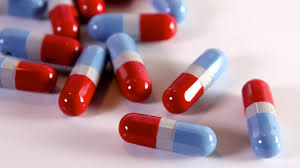Is Spasmo proxyvon plus really effective for muscle cramps?
A combination drug called Spasmo Proxyvon Plus Capsule, which is an analgesic, works by relaxing the muscles in the stomach or intestine to ease pain and cramps. Acute pain is transient, whereas chronic pain is ongoing. Acute pain is temporary discomfort brought on by injury to the muscle, bone, or other organ tissues. While chronic pain is long-lasting and brought on by diseases like osteoarthritis and nerve damage, etc.

The eight capsules of Spasmo Proxyvon Plus comprise Tramadol, Paracetamol, and Dicyclomine. The central nervous system’s pain receptors are the target of tramadol. It works by obstructing the pain-causing nerve messages. By preventing the production of chemical mediators that produce pain, paracetamol functions as an analgesic.
When used together, tramadol and paracetamol have a quicker onset of action and deliver rapid pain relief. Dicyclomine aids in preventing the body from responding by producing certain natural compounds that induce pain. Together, they successfully lessen the pain.
Benefits of Spasmo-Proxyvon Plus
The capsule form of Spasmo-Proxyvon Plus efficiently reduces severe, disruptive, and abrupt pain. It aids in the treatment of muscle spasms or contractions in the stomach and intestine (gut), resulting in muscle relaxation and improved food movement.
Additionally, it suppresses the brain’s chemical messengers involved in pain perception. This aids in the treatment of cramps, bloating, and discomfort in addition to treating abdominal (or stomach) pain.
How does it work?
The three medications Dicyclomine, Paracetamol, and Tramadol are combined in the capsule form known as Spasmo-Proxyvon Plus. Dicyclomine is an anti-cholinergic that eases gastrointestinal (intestinal) and stomach muscles and prevents unexpected muscle contractions (spasms).
It eases bloating, pain, cramps, and discomfort by doing this. The analgesic and antipyretic drug paracetamol acts by preventing the release of specific chemical messengers that induce fever and pain. As an opioid analgesic, tramadol reduces the impression of pain by preventing the brain from receiving pain signals.
Side effects
The majority of adverse effects are temporary and go away as your body becomes used to the medication. In the event that they continue or cause you concern, speak with your doctor.
- Nausea
- Vomiting
- Constipation
- mouth feeling parched
- Sleepiness
- Weakness
- Nervousness
- distorted vision
Uses of Spasmo Proxyvon Plus
Associated with muscle spasms, moderate to severe pain
Your muscles will clench or spasm when this happens. It may persist for a few seconds to 15 minutes and be uncomfortable. Exercise that is too vigorous, muscle injury, dehydration, and poor blood flow are the most frequent reasons. The muscles in the arms, hands, thighs, legs, feet, stomach, and intestinal wall can all be impacted. If your muscular cramps are severe or linger for a long time, you could need medical assistance. The capsule form of Spasmo Proxyvon Plus is indicated to treat mild to severe muscle discomfort.
Colic discomfort
Colicky pain is characterised by sharp, localised pain that begins and ends suddenly. is referred to as colicky pain. It typically happens as a result of obstruction caused by forcing stuff out in hollow organs such the intestines, rectum, gallbladder, and ureter. Spasmo Proxyvon Plus Capsule is used to stop colicky pain and abrupt muscle contractions or spasms.
Contraindications of Spasmo Proxyvon Plus
- Intolerance to any of the drug’s ingredients
- gastrointestinal blockage, including paralytic ileus, that is either known or suspected
- use within the last 14 days or concurrent use of monoamine oxidase inhibitors (MAOIs). Selegiline and Rasagiline are two examples.
- Alcohol and this drug together can have fatal consequences, including respiratory depression, coma, and even death.
- Children under the age of 12 should not take this medication.
- It is not recommended for use in children under the age of 18 after tonsillectomy and/or adenoidectomy.
- severe or acute bronchial asthma in the absence of resuscitation tools or in an unmonitored environment.
- respiratory depression that is significant
- Glaucoma at a closed angle
- Chronic myasthenia
- Haemorrhage
- In people who are elderly or disabled, intestinal atony
- Uropathy with obstruction
- significant ulcerative colitis
- esophagitis with reflux
- babies under 6 months old (reports of seizure, respiratory failure, death)
- active, severe liver disease, etc.
REFERENCES:
- https://www.1mg.com/drugs/spasmo-proxyvon-plus-capsule-166801
- https://www.practo.com/medicine-info/spasmo-proxyvon-plus-capsule-54641
- https://pharmeasy.in/online-medicine-order/spasmo-proxyvon-plus-capsule-29422
- https://www.apollopharmacy.in/medicine/spasmo-proxyvon-plus-capsule
For more details, kindly visit below.
